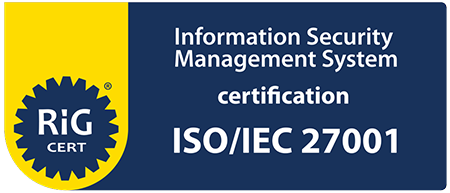People, companies, and realities have changed. This, of course, set new challenges to human resources management.
Many organizations do not function in the same way. For example, a vast number of companies work fully remote or hybrid or have made internal reconfiguration of the office visits so that their employees can feel safe.
Today we present you the top 5 new issues for HR leaders (and almost anyone who manages people), as well as some expert tips on how to overcome them.
1. Measuring employee morale
According to Paychex's study, almost half of the HR leaders claim that they face severe difficulties in measuring the morale of their employees. Does it sound familiar to you? Working remotely, employees are no longer in the direct sight of their managers, and this is not just a physical test for leaders. During the last year, everyone has been stressed by life in some way. So, how do you know if people are currently under stress and not feeling well or motivated with work?
The answer to these questions is simple - just ask them. Do a survey. It's quick and easy with digital tools like Employee Pulse Survey or Employee Opinion Survey. Still, you can't try email or face-to-face conversation to ask them to rate their morale, engagement, and motivation to work compared to pre-COVID times. Ask for their opinion on what can be done to improve the current situation.
2. Take care of remote workers’ mental health
Almost 48% of HR leaders share that they are concerned about their employees' mental health, whether they work remotely, on-site or hybrid. HR experts are usually those people who offer them various opportunities to improve it. But with remote working, this is a much more significant challenge because it's tough to notice if someone is going through a difficult time or shows disturbing symptoms in their behavior.
To help your colleagues cope with this problem, you need to put effort into promoting the mental health benefits package provided by the company. It would be a good idea to offer your colleagues a list of outlets where they could relieve stress and reduce levels of anxiety. And more importantly - share this information often and through several communication channels.
Regularly invite employees to give feedback and make sure they understand every piece of the shared information.
3. Monitoring employee behavior
About 45% of HR leaders say monitoring employee behavior is more challenging than ever. But this is not a big surprise. If you don’t see employees every day, how they work and interact with their colleagues, it’s difficult to tell if they’re always acting as they are expected to.
But monitoring employee behavior should not be limited to verifying employees are not doing things they are not allowed. The point is to make sure they feel committed and motivated to thrive.
Encourage managers to organize short meetings with employees on a weekly basis in-person or virtually to make sure that they have the resources they need and check on each employee’s general wellbeing.
4. Adapting to new workstyles
HR leaders around the world share that adaptation of employees to remote work, whether it was fully remote, or hybrid was a huge challenge for many of them. Some employees adapted quickly and did well enough, working from home. Others could and wanted to work remotely permanently. And some employees experienced great difficulties working from home due to lack of resources, inability to concentrate, family problems, etc.
So, in this case, the question is how to help everyone overcome changes and adapt better? The key is to develop flexible thinking and fast and adequate reactions to the emerging change. It is essential to teach your people how to reframe the problem into a question to trigger their brains to look for solutions instead of instantly rejecting the idea.
5. Recruiting new employees
When the pandemic came, most companies stopped or at least slowed down the process of hiring new people. At present, many organizations recovered successfully, and almost 40% of HR professionals are struggling to hire new talents.
Yes, it is different and probably more difficult in some respects to find the right candidate or make a decision to hire a person when you hold an interview virtually or even in person, but with masked faces. However, many HR leaders successfully tackle and even take advantage of these challenges. But how?
"It's really important to make sure that there's a solid understanding of what good looks like?" said Lauren Smith, vice president at Gartner Research. "What are the skills that are required for this job? What are the experiences that a good candidate would have or outcomes that they have achieved in previous roles?"
Make sure that the interview you are going to conduct is founded on these fundamental understandings. Know that virtual onboarding and the option for remote work have considerably expanded the boundaries of the talent market. So take advantage!



